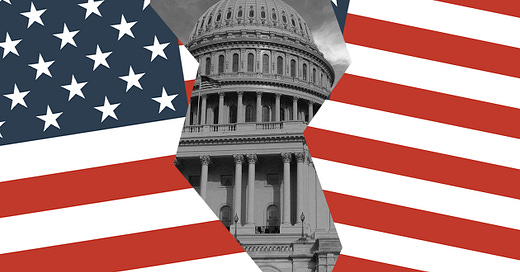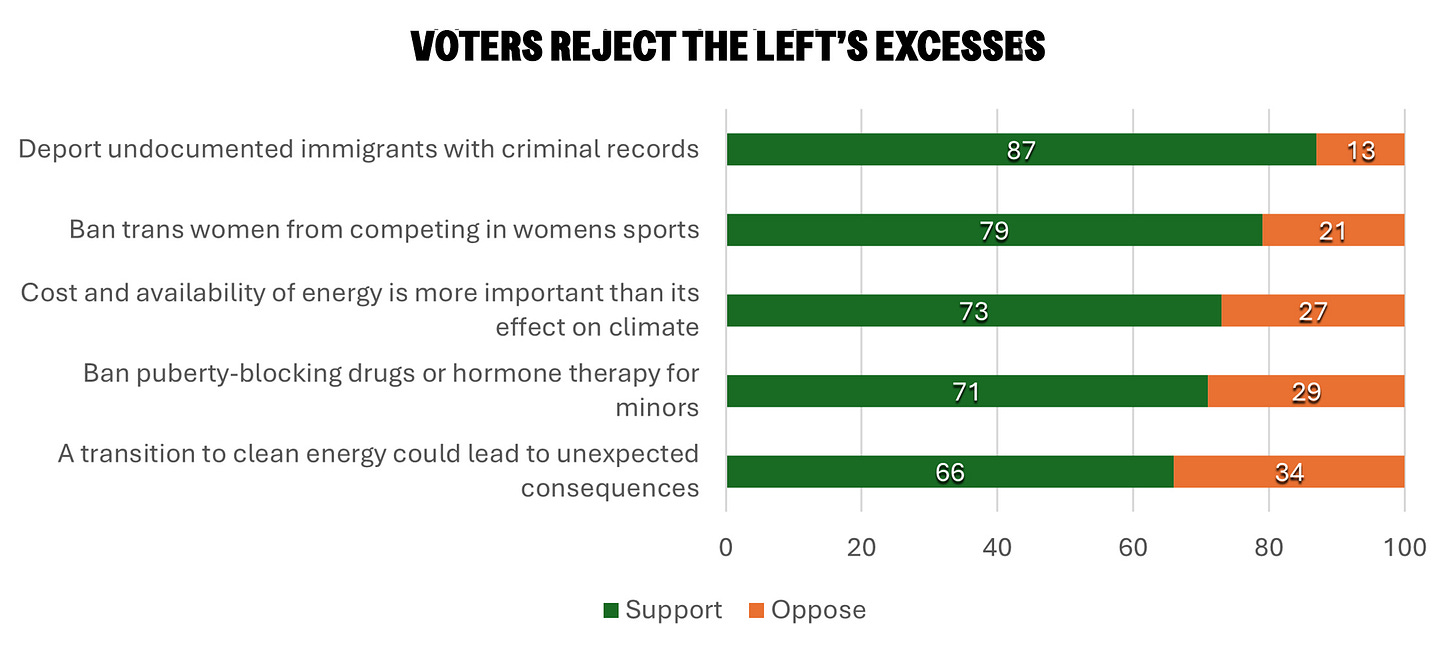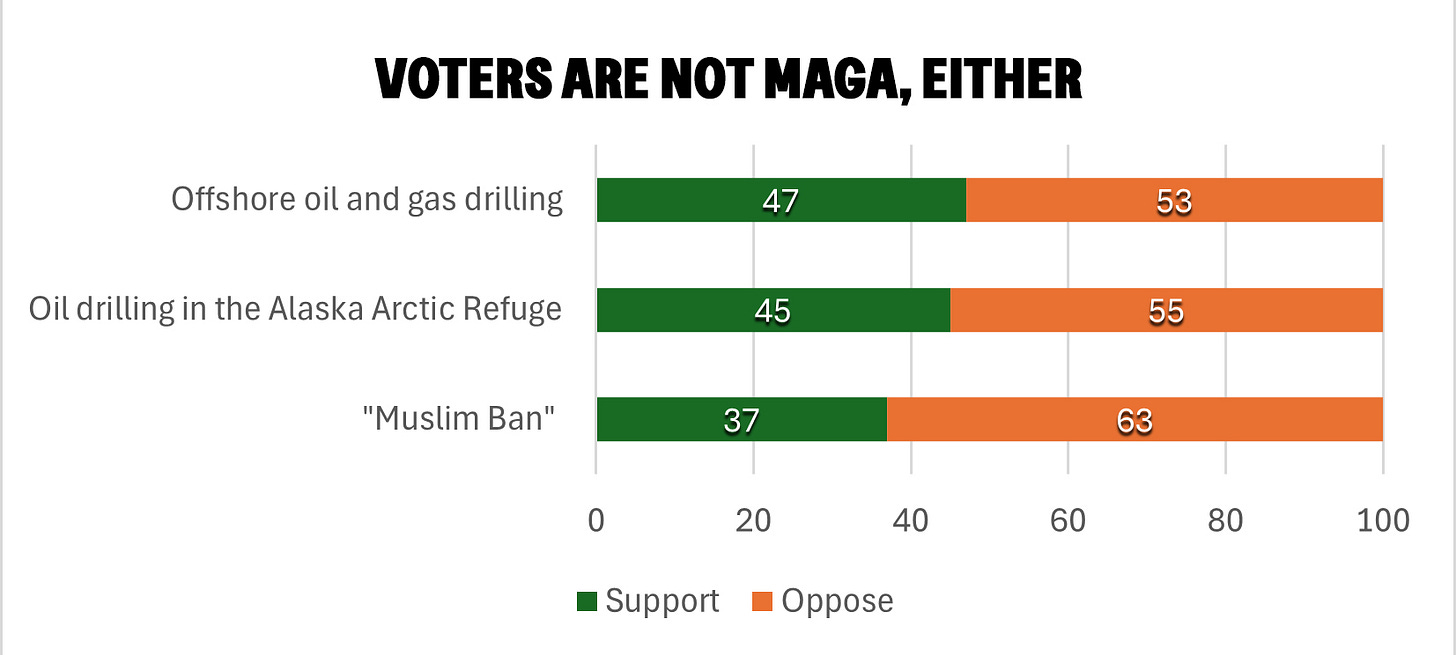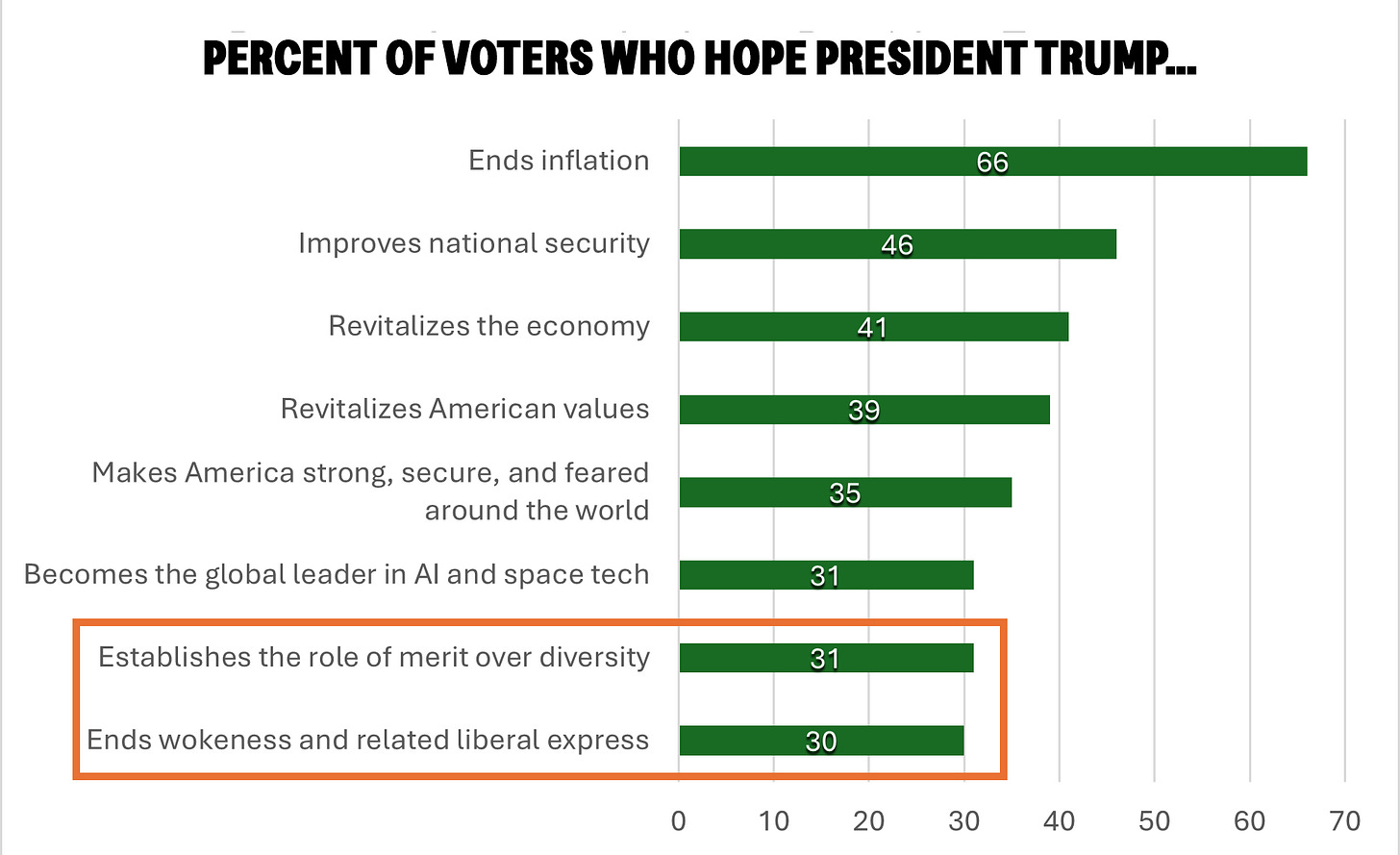President Trump’s popular vote victory in November all but confirmed that the far left is out of touch with the majority of Americans.
Recent polling and insights by
, a Senior Fellow at the American Enterprise Institute and one of the most respected minds in political analysis today, shows just how much distance there is between most Americans and the left flank of the Democratic party.Teixeira detailed his findings in his article “The Hills the Left Will Die On.” He identifies three “hills” where the far left is most unpopular with Americans:
Border security
Identity politics
Energy and climate
Citing a New York Times survey as well as his own polling, Teixeira determined that the far left is too lax on illegal immigration, too aggressive about policing language and “canceling” people with reservations about gender-related issues, and too religiously devoted to forcing a clean energy transition without giving heed to its costs.
This chart lists policies and beliefs that, based on the polling, the vast majority of Americans (shown in blue) would support but the far left would oppose.
Deporting undocumented immigrants with criminal records is perhaps the most striking example; even 83 percent of Democratic and 85 percent of Hispanic voters support it. Some Congressional Democrats – 46 in the House and 12 in the Senate – paid heed to the public’s desires and voted for the bipartisan Laken Riley Act, which would detain undocumented immigrants charged with theft-related crimes. But still, well over a hundred Democrats voted against it. While some of the opponents were moderates with good-faith objections to the fine print of the bill, many more presumably bowed to the will of the left.
But do these polls mean the public has shifted to the far right? Hardly.
As we explored last week, most Americans have more nuanced views and form opinions on an issue-by-issue basis instead of following what any “side” supports.
So, just because voters want a measured approach to energy policy and stricter immigration laws does not mean Republicans have a mandate to do whatever they want. The most recent Harvard Harris poll found that most Americans oppose oil drilling in sensitive areas or denying entry to people from Muslim-majority countries (the so-called “Muslim Ban” from President Trump’s first term).
And while voters may agree that the left is too preoccupied with identity politics, they do not want Republicans spending all their time moving the country in the other direction. The Harvard Harris poll asked voters what they hope President Trump achieves in his second term; “end wokeness” came in last place while kitchen table issues topped the list.1
Leaders should reflect on what the voters are saying. Americans want commonsense border and immigration policy that keeps criminals out of our communities. They want an “all-of-the-above" strategy to keep energy prices low in the short term and make energy sources clean in the long run. And they want Washington to bring down inflation, not endlessly start and fight culture wars.
Both parties have a golden opportunity to move to the middle and give Americans what they want. Will they seize the moment, or let politics get in the way?
The numbers do not add up to 100 because respondents were told, “Select all that apply.”







A good summary of the general feelings of the voters. I think that voters in general believe that that the President has a lot more impact on significant domestic issues than he/she actually has (if Congress were to actually do its job). Congress has the power of the purse but they seem to have big holes in their purse. For example, President Trump by himself can't do much to change the course of inflation (although he is trying to do so by Executive Orders). However, since Congress kind of shifted authority for imposing tariffs to the President, it is indeed a lever he has to change the course of inflation. It remains interesting to see the general population's view on relative importance of the woke and DEI issues.
I too would like to see common sense inform our national discussion and direction, but some of these polling questions are naive in the extreme, if not misreading. For example, you indicate most agree that “transitioning to clean energy could lead to unexpected consequences.” I suspect most would also agree that “not transitioning to clean energy” could also lead to unexpected as well as expected consequences, witness California. Using data to make the case is obviously important, but data like this raises more questions than answers.